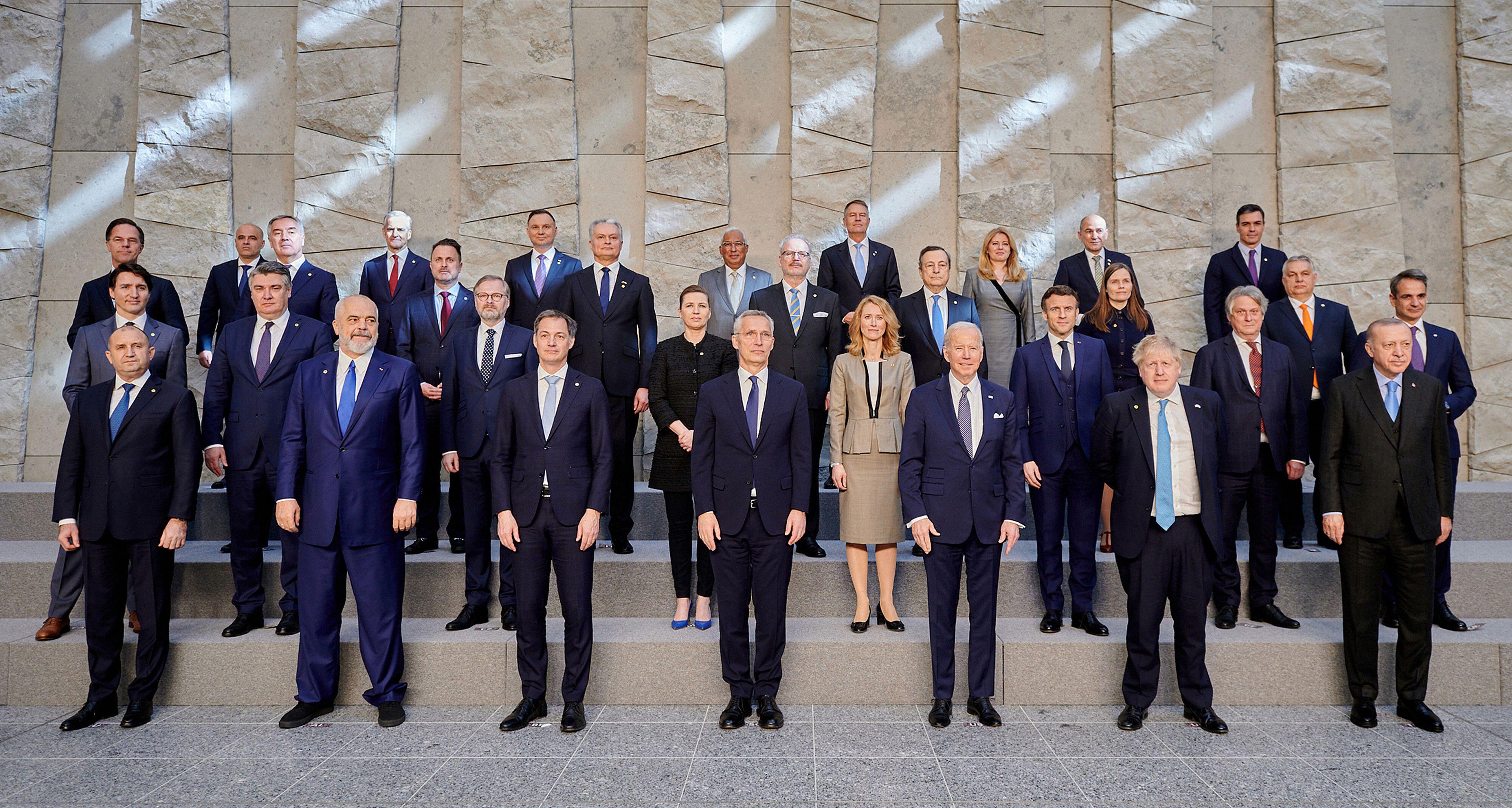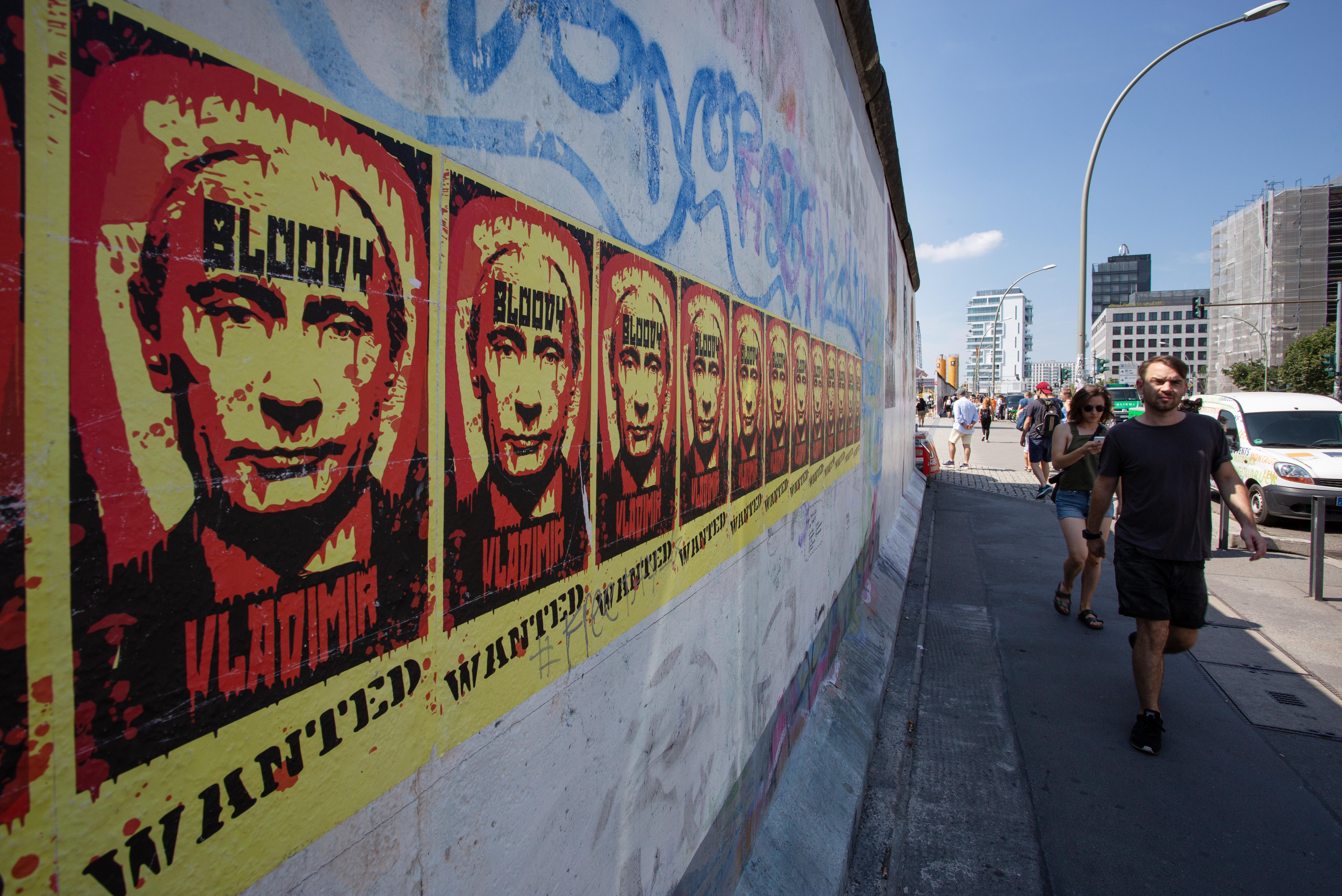Endgame in Ukraine: Can we negotiate with Putin?
In the city of Zaporizhzhia, in south-eastern Ukraine, Vladimir is grieving the loss of two generations of his family. His daughter Natasha, 26, and four-year-old granddaughter Dominica were both killed when a Russian shell landed near their shelter in the besieged city of Mariupol.
Speaking to the BBC as a second daughter underwent surgery, Vladimir struggled to comprehend his new reality. Many of us are struggling to understand this new reality, one where innocent men, women and children are being murdered at the whim of one man, Russia’s increasingly autocratic and paranoid leader.
As he prepared to bury his “lovely girls”, Vladimir asked: “God, why would you bring all this upon me?”
But there’s currently not much evidence of God in Ukraine. Mariupol, once a bustling coastal city, has been reduced to rubble, a hellscape where even hospitals and theatres are targets for Russian bombs.
After badly underestimating the scale of the Ukrainian resistance, Vladimir Putin’s “special military operation” is now a war of attrition. While this has been portrayed as a change in tactics it will, in effect, mean more of the same – the levelling of cities and the deaths of many more innocent civilians, the collateral damage of a pointless war.
According to British military intelligence, we should be prepared for increased civilian casualties, disruption of Ukrainian infrastructure and an intensification of the humanitarian crisis.
So how does it all end? At this stage of the conflict, anyone offering a definitive answer to that question should be treated with a healthy amount of scepticism. If this war has shown us anything so far, it’s to expect the unexpected. Few predicted Putin would launch an invasion, let alone perpetrate the atrocities currently being carried out in the name of “demilitarisation and denazification”, and which have so far led to the deaths of around 1,000 civilians, according to conservative estimates.
The most hoped-for outcome is surely a ceasefire. Yet while the two countries have held talks over a negotiated peace, they appear some way off reaching a deal as Russia demands that Ukraine becomes a “neutral” country, dropping its aspiration of joining Nato.
The West appears to have badly underestimated Putin’s opposition to Ukraine becoming part of its military alliance. In the weeks before the war began, that opposition was made clear by the Russian leader during a meeting with French President Emmanuel Macron.
Addressing journalists on 8 February, Putin said: “I’ve been saying it, but I very much want you to finally hear me and deliver it to your audience in print, TV and online. Do you realise that if Ukraine joins Nato and decides to take Crimea back through military means, the European countries will automatically get drawn into a conflict with Russia?”
“There will be no winners,” Putin warned as he once again reminded his audience about the size of his country’s nuclear arsenal.
If Putin has achieved one thing so far in this bloody conflict, and all the indications are that he is failing on multiple fronts, then Ukraine’s membership of Nato now looks far less likely than it did a few months ago. Earlier this month, President Volodymyr Zelensky appeared to concede the door had closed on his country joining the alliance, while Prime Minister Boris Johnson has said it won’t happen “any time soon”.
But while the two sides may reach an accommodation on Nato membership, an agreement on the annexed territory of Crimea and the breakaway regions of Donetsk and Luhansk appears further off. Zelensky, who is seeking a face-to-face meeting with Putin, wants an immediate ceasefire and the withdrawal of Russian troops before the territories are discussed. The Ukrainian president has said a peace deal may need to be ratified by a referendum in Ukraine.

World leaders gather for this week's Nato summit in Brussels | Credit: Alamy
The other potential outcome is escalation. It’s hard to see how an offensive which has indiscriminately targeted women and children and caused a refugee crisis unlike anything seen since the 1940s can be ramped up, but that’s exactly what both the US and the European allies fear.
Just as the pandemic gave us a new lexicon of treatment and disease, this war has introduced many of us to military language we would rather not have known. Among those phrases is the so-called ‘false flag’, an apparent provocation that has been staged to provide cover for a new offensive.
Since the start of this war, the US has repeatedly warned that Russia may seek to use a false flag to deploy chemical or biological weapons. President Joe Biden has said that Russia’s complaint that Ukraine has such weapons is a “clear sign” the aggressor plans to deploy them.
“They are also suggesting that Ukraine has biological and chemical weapons in Ukraine,” Biden said last week. “That’s a clear sign he’s (Putin) considering using both of those. He’s already used chemical weapons in the past, and we should be careful of what’s about to come.”
But at what point does an escalation cross a line that forces the world to react? For all the economic, humanitarian, moral and military support provided so far, Ukraine remains very much on its own fighting a much larger power. Had Russia invaded another former Soviet state – Nato members Latvia or Estonia, for example – the West would have been compelled to respond. Do the lives of innocent civilians in Ukraine mean less simply because the country is not a member of the military alliance?
While all hope must be for de-escalation, at some point it becomes morally indefensible not to act. If Russia unleashes a chemical attack on civilians, say, or even deploys a tactical nuclear weapon. Yet 11 years into the war in Syria, the world has effectively walked away while Russia provides the muscle for the regime of Bashar al-Assad, perpetuating a conflict which has claimed over 600,000 lives, according to some estimates.
The other complicating factor is China. According to US officials, Moscow asked Beijing to provide military equipment and support when it launched its invasion last month. As Russia’s international isolation continues apace, its fellow permanent member of the UN Security Council becomes an increasingly important ally.
It says much about Putin’s relationship with Chinese premier Xi Jinping that he waited until the Winter Olympics in Beijing had ended before beginning the senseless slaughter of innocent civilians, lest it overshadow the showpiece event.
While China’s entry into the conflict would be a genuinely frightening development, there appears little sign of this happening and while those in US intelligence refused to say whether Beijing had indeed supplied the Russian forces with weapons, there hasn’t yet been any evidence of that. And while China’s diplomats have refused to condemn the Russian invasion, the Chinese ambassador in Washington said his country would “do everything” to de-escalate the conflict.
In the UK, the past few weeks have seen such an outpouring of support for the Ukrainian people that it has inevitably led to attempts to shoehorn the conflict into domestic agendas. In a speech at the Conservative spring conference in Blackpool, the prime minister drew a clumsy comparison between the war and Brexit, saying that like the people of Ukraine, those who voted to leave the EU just “wanted to be free”. His comments drew a withering response from the former Ukrainian president, Petro Poroshenko, who was filmed wearing military fatigues and telling Johnson that “zero” people died as a result of Brexit.
In Scotland, as with almost every other issue, there have been those attempting to draw parallels between what’s happening in Ukraine and independence. That began in earnest with SNP President Mike Russell who, in a blog published on the SNP website, wrote of the “right of people to choose how they are governed and by whom”.
“Nor can that right be circumscribed by history – just because something was, doesn’t mean it will always continue to be so whether that be rule from Moscow, or the result of an eight-year-old referendum.”

Earlier this week, The Herald ran a front-page story based on comments made by Jonathan Eyal, of the Royal United Services Institute (RUSI), who said Putin would be “delighted” at the prospect of a second independence referendum next year, following a suggestion from the SNP that postponing the vote due to the war would be “grist to the Kremlin mill”.
And while Putin may have more pressing concerns than whether indyref2 takes place, Russia’s last-minute bid to host Euro 2028, which was set to be awarded to a joint bid from the UK and Ireland, shows that despite perpetrating atrocities and instigating a humanitarian crisis in Ukraine, Moscow can still find time for international mischief making.
Indeed, there is growing evidence that not only did Russian money attempt to influence the Brexit vote, but that its disinformation machine was in operation during the 2014 independence referendum.
Should a second independence vote take place next year, and that remains the SNP’s stated aim, issues which were perhaps confined to the margins of the debate in 2014 – defence spending, future Nato membership, the nuclear deterrent – will suddenly have a greater significance in a world much changed in the past eight or nine years.
And it is a world that is continuing to change. According to the independent Office for Budget Responsibility, rising inflation in the UK – caused in part by the war in Ukraine – is set to have the biggest impact on living standards since the 1950s. For those of us who have only known a world of relative peace and economic stability, there is a storm on the horizon.
When considering how this will all end, we shouldn’t forget Vladimir and his daughter and granddaughter so brutally taken from him in Mariupol, or the millions of others displaced, their lives changed forever. But neither should we forget the words of Russia’s foreign minister, Sergey Lavrov, who has spoken of the “world order” and an “epoch-making moment in modern history”. The war in Ukraine reflects “the battle over what the world order will look like,” Lavrov has said. He’s right, even if his world view must be resisted at all costs.
We may not yet know when this war will end, but it must be our vision of the future that triumphs when it finally does.
Holyrood Newsletters
Holyrood provides comprehensive coverage of Scottish politics, offering award-winning reporting and analysis: Subscribe